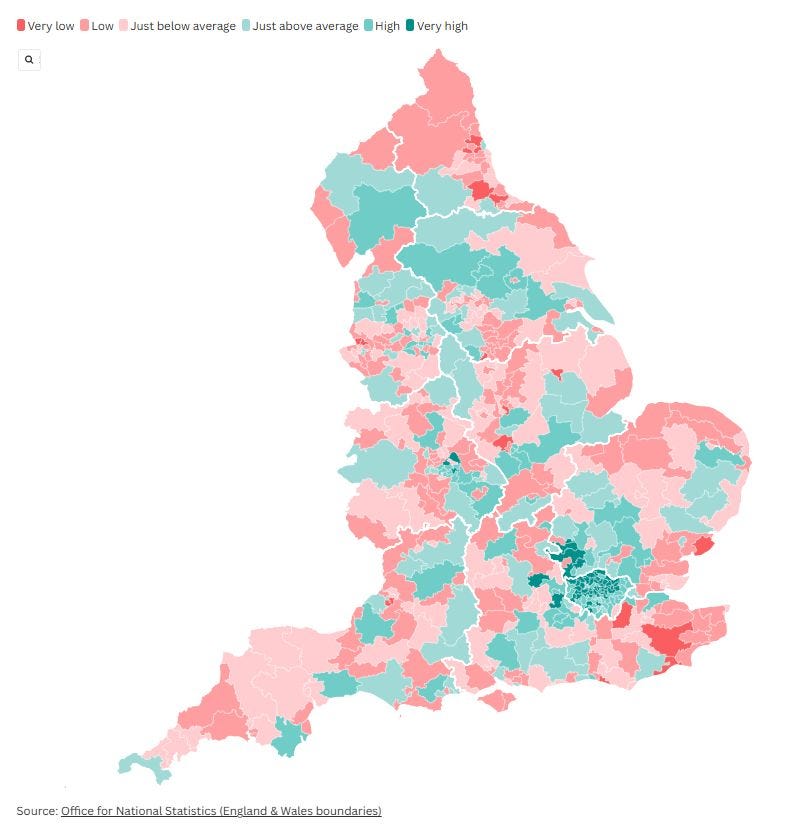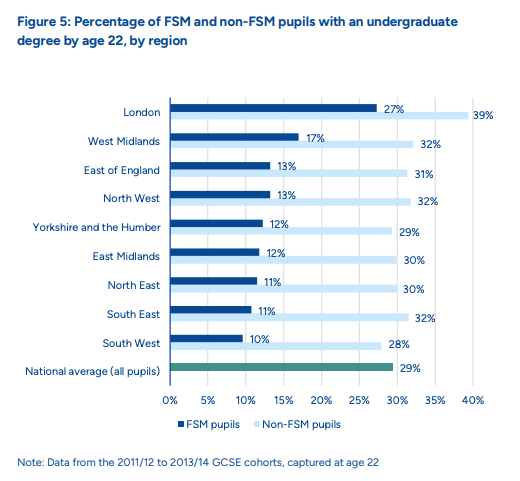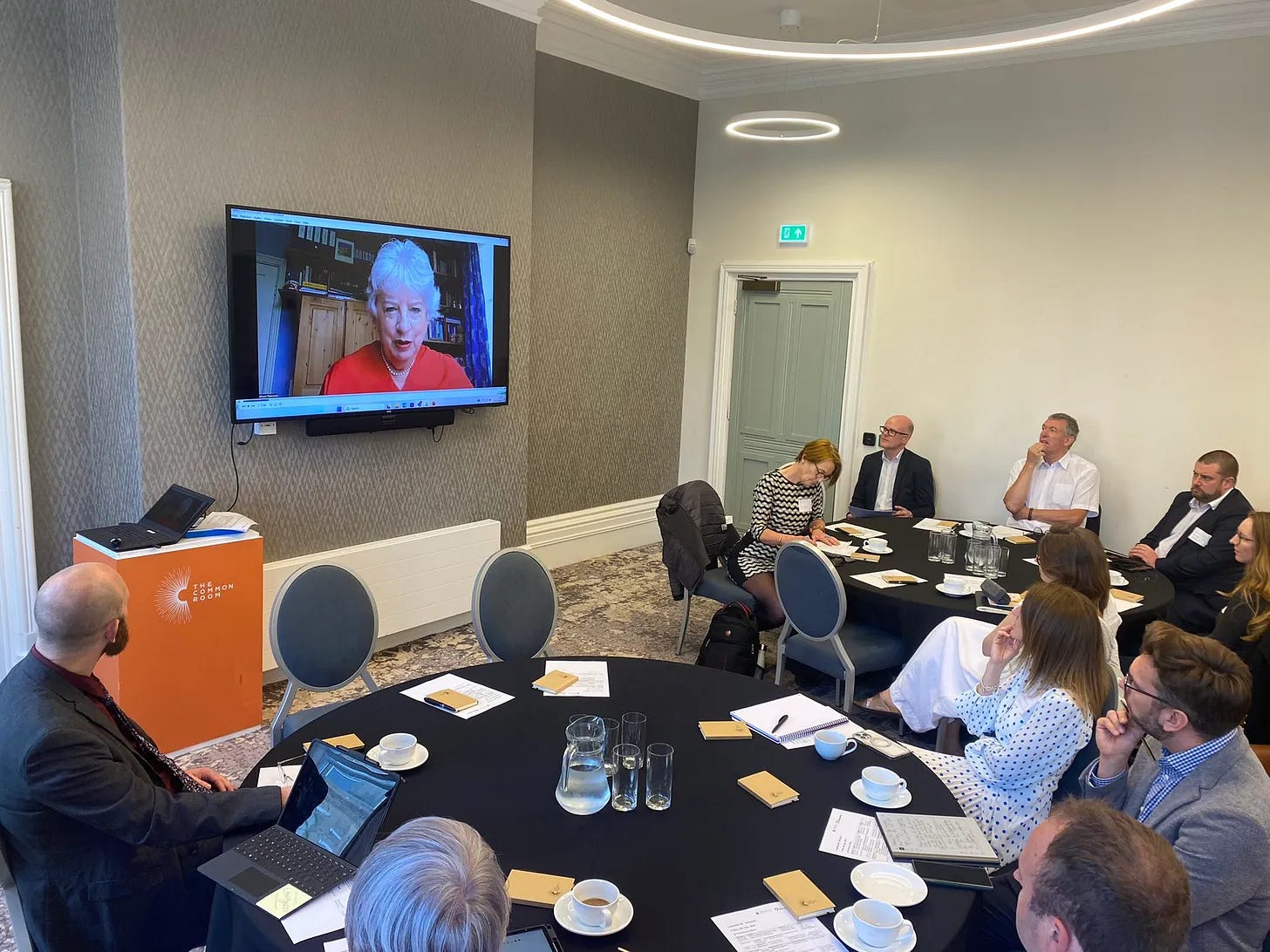
Sure Start generated £2 of benefits for every £1 spent, study finds
Recent research finds Sure Start centres produced lasting health and education benefits, saving £2.8bn and offering strong value for money.
£3.4m pledge for early speech and language support
The Department for Education has committed £3.4m to extend early speech and language support for children with SEND.
Apprenticeship shake-up to focus on younger adults
UK government will end funding for postgraduate apprenticeships for over-22s from January 2026 to focus on training younger adults.
EEF update signposts value of metacognition
The Education Endowment Foundation updates its Teaching and Learning Toolkit with new evidence; with metacognition emerging as one of the top evidence-based strategies to boost disadvantaged pupils’ progress.
School uses film and summer school to tackle absence
Putteridge High School in Luton is successfully tackling the national trend of rising pupil absences through the use of cinema and summer schools.
Research & Insights
The Opportunity Index
The geography of opportunity and social mobility in England
[Montacute et al; Sutton Trust, 2025]
This research from the Sutton Trust presents a detailed analysis to date of how geography and socioeconomic background shape opportunities for young people across England.
It explores the relationship between family income, parental education, and wealth alongside the geographical divide in life chances.
The report focuses on young people eligible for free school meals (FSM) and tracks outcomes across education, employment, and earnings.
Key findings are presented at both the regional and parliamentary constituency levels, with a particular emphasis on social mobility; particularly helpful for those of us interested in a place-based understanding of inequality and tackling it
Use the interactive map (link here) for your own context/setting
The 20 constituencies with the highest ranking for opportunity are in London, with East Ham ranked top. Amongst the top 50 constituencies, all bar 8 are in London.
The highest ranked area outside of London is Birmingham Perry Bar (West Midlands), at position 23.
Comparing the highest ranked area of East Ham (London) to the lowest ranked area of Newcastle upon Tyne Central and West (North East) shows a 30 percentage point gap in achievement of GCSE grade 5 in English and mathematics between FSM pupils in both areas.
FSM pupils from East Ham are over three times more likely to have a degree by age 22, at 35%, compared to those in Newcastle upon Tyne Central and West, at 10%
(Source: Sutton Trust, 2025)
Whilst 18% of FSM pupils from London are in the top 20% of earners at age 28, only 7% of those from the North East are, as are 7% from the North West and 7% from Yorkshire and the Humber.
FSM pupils from Ruislip Northwood and Pinner are six times more likely to fall in this top 20% of earners compared to those in Leeds East, at 25% compared to 4% respectively.
There are a plethora of useful recommendations provided. Examples include:
Equalising access to early education, by making at least 20 hours of provision available to all three- and four-year-olds.
Reforming the National Funding Formula, to rebalance funding back towards schools serving the most disadvantaged communities.
Ensuring no child is hungry in school by expanding free school meal eligibility to all children on Universal Credit.
Reducing social segregation in schools by making admissions policies fairer.
Education Policy, Children and Violence:
Eight recommendations for education policymakers to prevent children’s involvement in violence in England and Wales
[Youth Endowment Fund; 2025]
This guidance report from the Youth Endowment Fund (YEF) offers evidence-based recommendations to help prevent children’s involvement in violence, particularly through educational settings.
Over the past decade, youth involvement in violence has increased across England and Wales, with one in four teenagers affected and children with additional needs disproportionately impacted. Schools, as the service most consistently in contact with children, play a vital role in prevention
(Source: YEF, 2025)
Drawing on over 2,000 global studies, YEF Toolkit data, large-scale UK surveys of teenagers and teachers, and additional commissioned reviews, the report identifies key strategies schools, colleges, and alternative provision (AP) settings can use to reduce violence.
The recommendations are tailored to both England and Wales, informed by consultation with education leaders, researchers, and policymakers.
Update Pupil Premium and Development Grant Guidance
Encourage investment in evidence-based violence prevention in schools and AP settings.Targeted Funding for High-Risk Areas
Allocate £100m over five years to support violence reduction programmes in areas with high violence rates.Amend Ofsted’s Inspection Toolkits (England only)
Ensure inspections assess how schools support suspended pupils and safeguard children from violenceExtend AP Specialist Taskforce (APST)
Continue and expand co-located support services for children in AP.Violence Against Women and Girls (VAWG) Training
Pilot and roll out a programme to train leads in schools on teaching consent, harassment, and healthy relationships.Reform National Professional Qualifications (NPQs)
Add a focus on violence prevention to NPQs and create a new NPQ on safeguarding.Improve Attendance, Especially in AP/EOTAS
Scale effective attendance interventions and develop dedicated attendance strategies.Improve Education in Youth Custody
Develop a joint England-Wales strategy to raise education standards in youth detention settings.
The Year 7 School Switch-Off by Spring
Research and insights by Axiom Maths
[Axiom Maths; 2025]
Axiom Maths is a UK-based educational charity dedicated to nurturing mathematical talent among high-attaining pupils, particularly those from disadvantaged backgrounds.
This research from Axiom highlights a sharp decline in pupil engagement and enjoyment during the first year of secondary school, particularly by Term 2 of Year 7. It’s useful to consider this alongside other datasets showing similar trends.
Enjoyment drops, stress rises, and socio-economic gaps widen, especially for high-attaining pupils from disadvantaged backgrounds.
Notably, disadvantaged students reported lower enjoyment and support in maths, despite achieving well in primary school.
(Source: Axiom Maths, 2025)
The study identifies spring of Year 7 as the key moment when pupils’ positive attitudes begin to decline, underscoring the urgent need for early intervention to maintain engagement and prevent long-term disengagement and absenteeism.
The research helps to show that Year 7 marks a critical tipping point in pupils’ engagement with school.
To cultivate a generation of confident, capable mathematicians, Axiom believe that schools must ensure that students feel connected to their learning and supported through this transition.
Find out more about how they seek to do this alongside schools through their maths-based interventions.
Reflections of parent relationships as partners in the Early Years:
A person-centred approach
[Norman; Chartered College of Teaching, 2025]
The article by Amanda Norman highlights the importance of collaborative partnerships between parents and early years practitioners.
Although the case study is focused on early years, many of the principles apply across various phases of education I would argue.
It advocates for a person-centred approach (PCA), rooted in empathy, respect, and shared decision-making, to foster meaningful engagement and mutual trust.
By valuing parents as equal partners and recognising their unique insights into their children's needs, practitioners can create nurturing environments that support children's holistic development
Examples of key ideas highlighted in the article:
Central role of practitioner relationships: Effective collaboration between parents and practitioners is fundamental to the Early Years Foundation Stage framework, enhancing children's learning and well-being.
Benefits of person centred approaches: Adopting PCA principles, such as active listening, valuing parental input, and promoting autonomy, can transform interactions, making them more inclusive and empowering for families.
Creating nurturing environments and belonging: Drawing parallels to gardening, Norman highlights the need for practitioners to cultivate safe, adaptable spaces where both children and parents can develop a sense of place/belonging.
Edu-preneurship 1:
From profit to purpose
[Smith; 2025]
John Smith is no stranger to my Substack - he’s a good pal and a brilliant writer (who I also happen to work with on various projects too!)
In his recent blog, John introduces the concept of edu-preneurship as a way for educators to bring entrepreneurial thinking into education with a focus on social impact rather than just profit.
He critiques traditional profit-driven education models, arguing they often prioritise financial gain over meaningful learning outcomes.
Instead, John advocates for a purpose-driven approach that focuses on innovation, adaptability, and addressing real educational challenges.
His article highlights the potential for educators to act as change-makers by combining their teaching expertise with entrepreneurial skills, enabling them to create sustainable, impactful projects or ventures that serve learners and communities better.
(Roundtable in the North East hosted by RGS Newcastle, Tees Valley Education and the Chartered College of Teaching)
You can also read a detailed chapter from John on these topics in Tackling Poverty and Disadvantage in Schools. He’s also helpfully provided some free resources in the book to support leaders and educators developing these insights in schools and other contexts.
Look out in my forthcoming Cuppa with a Change Maker series (publication 06 June) as John talks more about this and offers practical insights on how to make it happen!
Opportunities
Make a difference in the Tees Valley
Come and support our PLACE based work!
You may have heard that Tees Valley Education and partners were successful in securing a significant amount of investment into Teesside!
With thanks to the National Lottery Community Fund, we have partnered with Zarach and the Sleep Charity to tackle sleep inequalities in the region.
Zarach is expanding its vital work in the Tees Valley and is recruiting a Family Engagement Officer to join the team.
This role offers an exciting opportunity to help shape and grow a dynamic local service supporting families in hardship across Middlesbrough, Hartlepool, and Stockton-on-Tees.
The successful candidate will need experience in case management, partnership working, and charity operations, and must be able to travel locally and occasionally to Leeds.
Applications close at 5pm on 22 June 2025, with interviews taking place in Middlesbrough on Wednesday, 09 July.
25% off for all Substackers!
I’m delighted to share that I’m able to extend a discount for our book Tackling Poverty and Disadvantage in Schools.
We have been so encouraged by sales of the book and it has been brilliant to see it across social media and in some very high profile places and hands!
But, more importantly, it’s exciting to know that the book is in the hands of school leaders and educators working in schools and communities.
To help support more educators getting access to the book, the code TVED25 will get you 25% off the book when bought directly through Bloomsbury
Here’s a behind-the-scenes look at the book if you haven’t yet seen it









